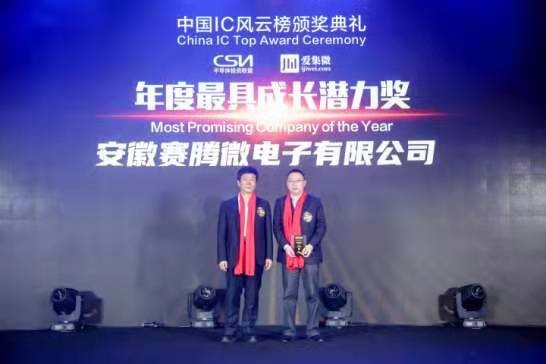
By Li Ying,JW Insights correspondent
The wide-spread shortage of chip products that is causing pain for the automobile industry around the world is not only justifying the attempt by those Chinese automobile chip design houses which had emerged over last couple of years, but also likely turn out to be new opportunities for them.
JW Insights interviewed such a player Sinemicro based in Hefei of Anhui Province in eastern China recently. Sinemicro specializes in MCU for automobiles and related power management products. Its CEO and General Manager Mr. Huang Jipo summarized his concept of IC for automobile as "intelligent, electrical, connected and sharing." It is not only the developing trend for automobile industry, but also bringing new opportunities for the global semiconductor industry, becoming a new driver for the chip industry following what the PC and mobile phone had done for it." The warming up of the new energy vehicles since the 2nd half of last year and the rapid development that caused the current shortage is proving this point. While the new trends may benefit Chinese design houses, they need to make big efforts and do solid work to face the U.S. and European dominant positions in this product segment.

Since its establishment in 2016, Sinemicro has turned out a series of products applied in vehicle LED lights, vehicle-mounted wireless charging emitter, car window lifter and smart windscreen wiper. It has supplied to major car manufacturers with 1.5 million pre-installed pieces. Its client list includes Cherry EV, Cherry Commercial Vehicle, Geely Auto, JAC, SGMW and DFLZM. Sinemicro is one of the Top 10 Unicorn Company recipients of the 2020 China IC Industry Top Award.
Sinemicro first developed a customized MCU-controlled LED taillight running-water-type turn signal chip in late 2018 and began large volume production after its products were certified by leading car manufacturers. It then expanded to car light area with MOSFET chip and produced platform kits and modules that combine MCU, power management and other devices. Having applied successfully to more applications and upgraded its technologies to include also a PTC aided heating system, Mr. Huang said his company has established a unique business model and increased its value for vehicle manufacturers and their tier one suppliers in China.
Last year Sinemicro produced two more autobody MCU controllers and IGBT modules. Mr. Huang is more confident about his company in 2021. On its new product and application agenda is 32-bit MCU controller in electrical device for EV, integrated lightening solution, new generation EV wireless devices with communication function and digital lock for more models. It will also work with Hefei University of Technology in developing new SoC controller for EV electronical system and new self-developed IGBT module to offer more complete solutions for electrified and intelligent vehicles.
For China's future in automobile chip industry, Mr. Huang pins hope on SiP (System in Package) and 3rd generation semiconductor. He said that China has the most complete industrial sectors in the world and every sector would need semiconductor chips, which mostly are not necessarily to be of advanced process technologies. SiP will produce more chip modules through more high-end packaging that does not involve advanced process technology and can satisfy practical needs.
"China is basically on par with the world in the 3rd generation semiconductor development in SiC and GaN areas. There will be broad prospects for these products' application in electronic vehicles, 5G communications and IoT applications. This could be the corner overtaking opportunity for our country's semiconductor technology progress," he said.
Apart from technological breakthrough, Mr. Huang also sees the acceleration of China's domestic substitute products, which have become an industry development focus following the U.S. sanctions on Chinese companies. He called for more governmental support to efforts in boosting domestic substitute products.
The current shortage of automobile semiconductor that have caused many vehicle companies to stop production can be a chance for related governmental departments to introduce and implement policies that would allow and encourage more trial use of indigenous semiconductors and then go on to develop ASICs and coordinated development in industrial chain with benign interaction, Mr. Huang said.
RELATED
-
NOTICE
11-22 17:38 -
JW Insights: 67.8% the 205 Chinese listed semiconductor companies see profit decline in the first three quarters of this year
11-07 17:47 -
JW Insights: R&D expenses of 205 listed Chinese semiconductor companies total RMB52.6 billion ($7.22 billion) in the first three quarters of 2023
11-06 18:37
READ MOST

No Data Yet~







